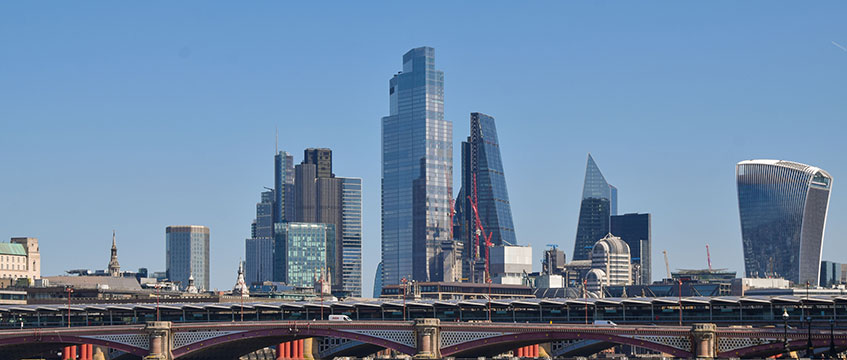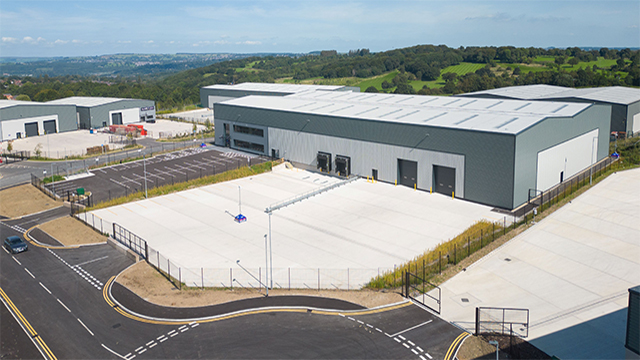As 2022 comes to a close, there are plenty of signs of strain in London’s office market. The leasing market has slowed to such an extent that Avison Young expects the fourth quarter to be the second-worst end to a year in more than a decade. Cushman & Wakefield has also warned the year could see “one of the lowest levels of activity on record in the final quarter”.
The challenges of a post-pandemic market have been followed by a tougher economic outlook over recent months, and transactions have been put on ice and repriced. But those deals still getting done underscore the fact that only top-quality buildings are attracting tenants and buyers. And as a bifurcation in the market continues, the best space is increasingly defined by its ESG credentials.
Ex to next
Even the most optimistic dealmakers in the capital’s office market could do little more than hope that green shoots would emerge for much of this year. Investment deals grew stagnant as investor confidence in the UK market was hit by a game of political musical chairs and an economic downturn.
Market conditions are far removed from this time last year, and to compare the two is like “asking which ex-girlfriend you love more”, according to Shaun Simons, co-founder of agency Compton. “This year feels like we have a more solid base following a steady year of transactions after the pandemic hiatus, but the level of uncertainty in 2022 seems greater than it did in 2021,” he added.
Factors including the mini-budget and multiple changes of prime minister “caused an unnecessary level of chaos for both the leasing and the investment markets,” said Simons. But while the leasing market “seems to have forgotten about it already and is back to business”, the investment market “remains uncertain, which is a likely trend during 2023, or at least the first half of it.”
Pricing is shifting, with many buyers looking to renegotiate deals initially agreed in a different market. Castleforge Partners is aiming to cut the price tag of Winchester House, EC2, by a further £20m, having initially gone under offer at a price of between £260m and £265m in August. Landsec’s disposal of 21 Moorfields, EC2, to Lendlease in an £809m deal this autumn was priced at a 9% discount to March book value.
The war for talent is being fought on the streets of the City and the West End
The sales of 21 Moorfields and 50 Finsbury Square, by Landsec and GPE respectively, were viewed as landmark deals in a period of uncertainty that demonstrated ongoing appetite for best-in-class assets. Likewise, the return of the law firms to the City “tells the story of the wider office market”, said James Abrahams, an Allsop partner specialising in City investment and development. “For those whose work relies on collaboration between clients and colleagues, the best spaces in the most attractive locations will win out.”
“The war for talent is being fought on the streets of the City and the West End,” added Abrahams. “This battle for best-in-class space is why we will see such a flurry of leasing deals and transactions next year. There’s a sense of FOMO as firms become increasingly aware of the dearth of supply and realise, they need the best spaces to be in the game and compete, and so they are looking now to stay ahead of the game.”
Quality streets
Sustainability initiatives remain front of mind for occupiers and therefore the investors and developers hoping to lease them office space. “We may have been in recession for half a year, but the ESG agenda has been prioritised more than ever, with the best-quality sustainable offices receiving really resilient interest,” said Tom Appleton, chairman of Rocket Properties.
“This is driven by occupiers who are demanding the utmost quality of office space and finding it increasingly difficult to recruit quality staff; trends which show no sign of abating in 2023.”
A shift in favour of retrofitting buildings where possible has continued. The BCO’s Circular Economy Report this year encouraged the industry to future-proof the office sector by retaining, extending life and reducing impact. The report, published in November, found offices account for 15% of the total commercial property sector’s waste.
“2022 has seen the development of a real two-track market in the London offices sector,” said Tristram Gethin, founding partner of Quadrant. “Around 90% of London lettings are on grade-A stock and as businesses continue to prioritise ESG, wellness and the employee experience, we will continue to see separation between the best and the rest.”
Recent political and economic instability have dented confidence in the market in the short term, said Gethin. But, ultimately, ambitious companies will still want to move to the best buildings in the best locations. He added: “We saw pauses for the GFC, Brexit and Covid, but people don’t want to stand still forever, and 2030 legislation meaning buildings will effectively be obsolete if they have an EPC rating of C or below will help focus the mind.”
Mindset shift
At Landsec, head of offices Oliver Knight said he expects 2023 to show “a continued shift towards hybrid and agile work, with businesses committing to leases and capital investment in grade-A, sustainable spaces located in places that their employees want to visit”.
Matthew Osborne, partner in the venture project management and building consultancy team at Workman, has predicted “a mindset shift around what ESG really means, and what the property industry should be achieving in terms of tangible measurable energy and carbon-reduction outcomes, rather than simply green-badging buildings”.
Despite many companies looking to downsize their office space, those that have made the switch have generally “upgraded to higher-quality offices in better, more expensive locations”, said Rob Cosslett, fund manager at Schroders Capital. “As we move into 2023, there will continue to be a polarisation between primary and secondary office assets, and we expect to see continued low demand for out-of-town older office assets from both occupiers and investors,” he added.
Philip Pearce, central London office leasing chairman at Savills, said he remained optimistic. Despite all of the challenges thrown at the market, the full-year performance in 2022 was “robust”. Next year, developers and investors must ensure they continue to assess the aspirations of the modern occupier, he adds – and make sure they can deliver the right space.
To send feedback, e-mail chante.bohitige@eg.co.uk or tweet @bohitige or @EGPropertyNews
Image © Vuk Valcic/SOPA Images/Shutterstock
See which agents are doing the most office deals in London >>











